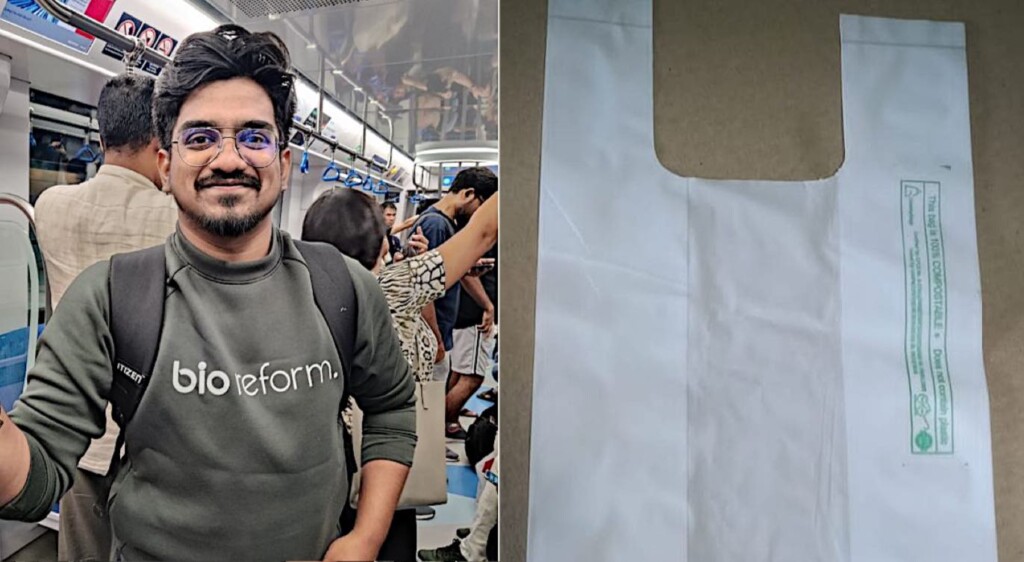"Dream, Dream, Dream! Conduct these dreams into thoughts, and then transform them into action."
- Dr. A. P. J. Abdul Kalam
"Dream, Dream, Dream! Conduct these dreams into thoughts, and then transform them into action."
- Dr. A. P. J. Abdul Kalam
21 Aug 2024
Six million plastic bags have already been swapped out at checkout lines across India by his company, Bio Reform. Mohammed Azhar Mohiuddin, a Hyderabadi, originally had the idea during the general chaos that followed the pandemic. Mohiuddin was searching for pressing environmental issues that he could tackle with his entrepreneurial spirit. Ultimately, he chose to address the pervasive problem of plastic use, highlighting society's heavy reliance on it and the growing dangers of microplastic pollution.
The biggest firms, according to Mohiuddin, were switching from plastic bags to paper or even jute ones. However, the marginal cost rise of switching to biodegradable bags was too much for medium-sized and small businesses, which account for the bulk of India's economy. He began researching PBAT, or polybutylene adipate-co-terephthalate, a biodegradable polymer that was initially created and studied in the 1980s, according to The Better India. It was cooked with potatoes and corn during the time. To find an appropriate class of machinery to produce the PBAT bags in Gujurat, he had to avoid scams and government-mandated quarantines. However, his presentation on PBAT helped him secure approximately $100,000 (1 crore) in seed investment, which allowed him to start the project.

(Source: Google Images)
“I tried to balance both my studies and the operations of the company—from collecting raw material, assisting workers to manufacture bags, delivering the products in the market,” His struggles were clear and loud in his journey as he used to sleep in a corner in the factory. After overcoming bankruptcies, academic pursuits, and a protracted backlog of unmet orders, Bio Reform was able to begin making a profit and is currently producing about 500,000 bags annually at a gross income of $180,000. Plastic pollution-related problems now harm more than just wildlife and marine life. Microplastics are now circulating in our blood. Water in bottles has microplastics in it. Taking care of this issue is crucial and urgent.
"I'm happy I can do my share of the work. Living away from a traditional college environment can be exhausting at times, but it is ultimately worthwhile. When I return to sleep, I am satisfied. However, a lot more work needs to be done, and I'll keep working toward making India plastic-free," he concludes.